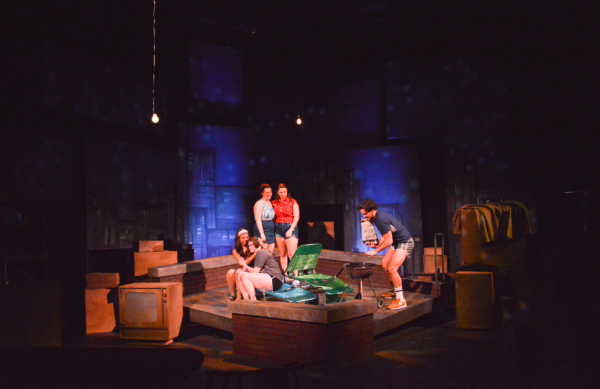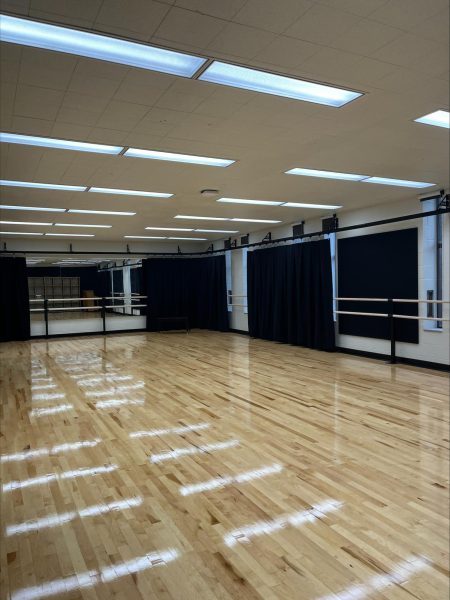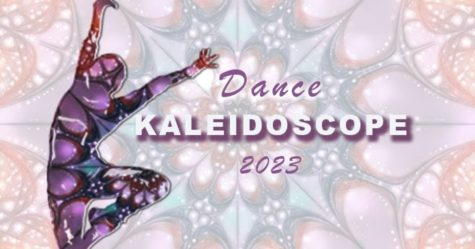‘The Pajama Game’: Get in the know before the show
November 8, 2021
This month, on November 19-21, the Conservatory for the Performing Arts will be presenting “The Pajama Game,” a Tony Award-winning musical composed by Richard Adler and Jerry Ross. The production, which will have an estimated runtime of more than two hours, will be one of the first major-length theatrical productions performed in the Main Theatre since the COVID-19 pandemic brought the 2019-20 season to a halt in March of 2020.
This production, with its history of success and interesting roots, will surely provide some of the entertainment that La Crosse audiences have been missing. According to the Wikimedia Foundation, the original Broadway window card characterizes the show as, “A humdinger…a bright, brassy, and jubilantly sassy show!” Seeming to live up to this hype, the original production won the 1955 Tony Award for Best Musical, with the 2006 reboot winning Best Revival. The stage production, written by George Abbott and Richard Bissell, was based on the latter’s previously written novel: 1953’s “7 ½ Cents.”
The essential plot of the production—with spoilers minimized—is thus: at the Sleep-Tite Pajama Factory, tensions are rising over the union committee’s campaign to raise wages by 7.5 cents per hour. The leader of the company’s Union Grievance Committee, Katherine “Babe” Williams, goes toe-to-toe with the factory’s new superintendent, Sid Sorokin, and sparks end up flying between the two—the kind that don’t come from factory machinery.
When these fictional sparks first flew across the pages of “7 ½ Cents,” in 1953, Nathan Glick wrote a review of the book for Commentary Magazine. In his article, Glick included an intriguing angle on why the little story about a fictitious Iowa garment factory was demonstrative of a new literary trend for the decade. He wrote nearly 70 years ago, “The 30s had their ‘proletarian’ novels, but these were concerned with class-consciousness and revolt—not with how a worker passed eight, ten, or twelve hours at a machine or desk. The 40’s brought forth novels about life in the office…of an advertising agency or a private eye”—think Dick Tracy— “but their interest in the daily life of the office was usually either grudging or exotic…”
“The Pajama Game,” in essence, is a poster child for the 50s’ approach to plots based in the ordinary places of life, but not for dramatic effect or to be juxtaposed with some great philosophical background. Instead, the setting provides a sort of “curtains are just blue” backdrop for the themes of ironic love amidst the struggle for a higher wage—both of which transcend decades and eras.
The Viterbo production is directed by Alex Mallory, a visiting assistant professor of theatre and music theatre with the cast consisting of students from the Conservatory for Performing Arts. Showings will take place at 7:30 p.m. on November 19 and 20 with a 2:00 p.m. matinee on November 21. General admission tickets will cost between $18 and 24 based on the seating area chosen, but current students can advantage of a relatively new Fine Arts Center policy to purchase $1 tickets for themselves. Music Theatre International provided rights and performance materials. It is unknown at this time whether the production will be recorded for later viewing, but due to copyright concerns, it is unlikely.










